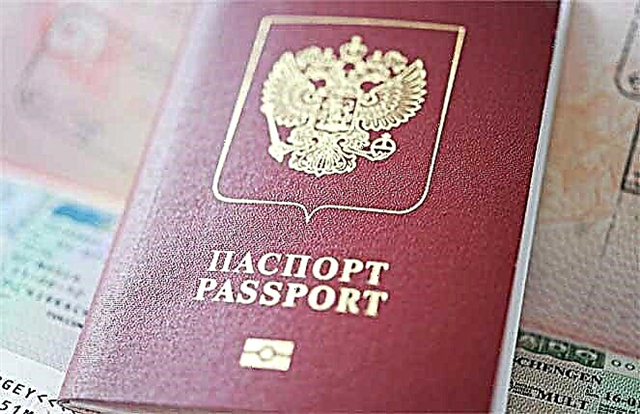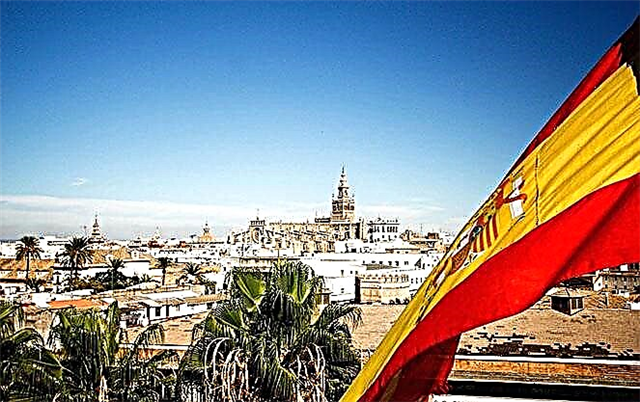The idea of leaving for Spain for permanent residence seems very attractive for residents of the countries of the post-Soviet space. Sunny, warm, beautiful, civilized and progressive - this is how Spain seems to us. However, in order to permanently reside here, you just need to know exactly what the standard of living in Spain is and what prospects migrants have in terms of employment and opportunities to ensure a decent life.

Life in Spain: salaries and quality of life of citizens
The cities of Spain are very comfortable in terms of ecology and climate - it is warm here almost all year round, the night temperature in winter does not drop below 7 ° C, clean air saturated with ozone and sea salts, the coast is very well-groomed and tidy.
It is believed that the best places to live in Spain are the capital Madrid and other comfortable cities - Barcelona, Valencia, Salou, Tarragona, Alicante. However, everyone chooses a place to live based on their personal preferences and desires: some are more suitable for not very popular, but beautiful coastal towns, for example, Sant Feliu de Guixols in Catalonia, Rincon de la Victoria in Andalusia or Guardamar del Sigurah in Valencia. Prices here are much lower than in Spanish cities, including real estate.
The country is also interesting in terms of historical and cultural attractions. A rich nightlife, many fairs, festivals, exciting sports events attract tourists and foreigners from all over the world to Spain. Moreover, the cost of living in the kingdom is cheaper than in other European countries. At the same time, the quality of life meets all European standards. Also Spain has a very low crime rate.
How much can you earn in Spain
The country has a fairly high unemployment rate when viewed in general across the EU. In 2021, the number of unemployed reached 17%, and if we take only young people, then 30%. This may be due to lower wages (salaries) than in other European countries.

According to Adecco, in 2021 the average salary in Spain after taxes is 1,646 euros, which is 0.6% more than in 2021. However, the calculation of the average wage does not quite reflect the situation, since the size of the salary of the Spaniards is very dependent on the region.
The highest salaries in Spain are for residents of Madrid and the Basque Country, and the lowest are for the communities of Extremadura and the Canary Islands (1945 and 1477 euros, respectively).
According to official figures (on the website of the National Institute of Statistics), the living wage in Spain is 645 euros, the minimum wage is 736 euros / month, and the most common monthly salary is 1375 euros.
Social assistance to the population in Spain
The presence and nature of social benefits is one of the most important indicators of the country's standard of living. In Spain, the state strongly supports its citizens:
- pensions are higher here than in neighboring EU countries (60–100% of salary);
- such categories of the population as the poor, the disabled, the elderly, former prisoners, refugees, the unemployed, pregnant or young mothers, representatives of ethnic minorities are entitled to social assistance;
- in case of loss of work, an allowance in the amount of 60-80% of the previous salary can be received for another 2 years;
- citizens are provided with free medical services and travel benefits.
If you want to know how foreign citizens live in Spain, then they also have the right to count on benefits and allowances. Unemployment benefits can be received by those who have worked in the Kingdom for at least 1 year in the last 6 years of residence. Employed emigrants with social insurance cards can apply for free medicine and medicines.
Medical services
A decent level of medicine is evidenced by the average life expectancy in Spain - 82 years. The Spanish health care system is considered one of the most advanced in Europe; the state annually spends about 10% of GDP on this area. At such a high level, treatment in Spain is about 40% more affordable than in Germany or the UK.

Free medicine is one of the factors by which you can understand how ordinary people live in Spain.
In order to be eligible to be served in hospitals for free, a citizen must have insurance. For foreigners, this service is provided to minors, students, officially employed or pregnant women.
For other categories of migrants, only emergency assistance is free, and in order to receive a preferential service in full, you need to purchase a medical policy at your own expense. You can do without insurance, but in this case, the treatment will be quite expensive: for one appointment with a specialized specialist, you will have to pay from 80 to 200 euros.
Average cost of living in Spain
In terms of the cost of living, Spain is considered one of the cheapest countries in the EU, the price level here is about the same as in Russia. At the same time, salaries are on average above 1000 euros. And those who receive the minimum wage can enjoy various benefits and privileges from the state.
It is believed that the best cities in Spain to live, if we take the amount of salary as a basis, are Madrid and other metropolitan areas. Accordingly, prices here are also higher than the national average.
Rental expenses
The most expensive rental housing in Spain is in the country's two largest metropolitan areas - Madrid and Barcelona. In the center here you can rent a "odnushka" for about 700-1100 euros, prices on the outskirts will be up to 25% lower (500-750 euros).
Three-room apartments, respectively, will cost 1200-2000 euros and 800-1400 euros, depending on the area.
Naturally, life in the province of Spain will be cheaper. For comparison, here are the average prices in some other cities (in euros):
| Town | Centre 1 room | Centre 3 rooms | Outskirts 1 room | Outskirts 3 rooms |
|---|---|---|---|---|
| Alicante | 457 | 654 | 366 | 546 |
| Valencia | 577 | 931 | 400 | 622 |
| Benidorm | 483 | 816 | 386 | 600 |
| Malaga | 586 | 978 | 448 | 705 |
| Ibiza | 1062 | 1825 | 925 | 1262 |
| Torrevieja | 316 | 525 | 276 | 479 |
| Tenerife | 526 | 750 | 402 | 561 |
In addition to the monthly payment for housing, do not forget about utilities. The cost will depend on the amount of consumed resources: water, electricity, gas, as well as the area of the apartment.
It is estimated that, on average, a family of 2 people who will live in a one-room small apartment will have to pay about 80 euros per month for utilities. For a 3-room apartment you will have to pay a little more - plus or minus 120 euros.
Product costs
To understand how much money you will need to spend while living in Spain, it is important to study the average food prices in the country. How much is a consumer basket in Spain in 2021, judge by the following prices (prices per kg, unless otherwise stated, are in euros):
- milk - 0.77;
- beef - 10.20;
- pork - 8.50;
- chicken, fillet - 5.70;
- cheese - 9.00;
- fish - 3.00-10.00;
- apples, bananas, tangerines - 1.50;
- tomatoes - 0.94;
- cucumbers - 1.30;
- onions - 0.99;
- rice, pasta - 0.93;
- eggs (ten) - 1.40;
- bread (half a kilo) - 0.93;
- coffee (package 250 g) - 2.30;
- local beer (0.5 l) - 0.80;
- water (1.5 l) - 0.55;
- wine (1 l) - 6.00;
- cigarettes (pack of Marlboro) - 5.00.
It is worth noting that, taking into account the size of salaries, the Spaniards spend only a small part of the budget on food, in contrast to the citizens of the Russian Federation, who are forced to spend more than half of their salary on food.
Urban transport in Spain
Excellent transport infrastructure is one of the reasons why living in Spain is good. A convenient network of roads and routes, the presence of a metro and a taxi allows you to quickly and easily get to any point in all cities of the country.

Public transport in Spain is very convenient. In large cities, it is represented by metro, trams, buses, intracity and suburban trains. You can call a taxi or stop it freely on the street, or take a car from the parking lot.Average cost of the journey: for 5 km - about 10 euros.
A one-time metro ticket costs 1.3 euros, more trips will cost less - 8 euros for 10 trips.
The network of bus lines is well developed - both within cities and intercity. Transport runs strictly according to the schedule, the interval is no more than 15 minutes, the operating time is from 6 am to 12 am. The cost of a ticket on city buses is from 50 cents to 1 euro, on intercity buses - from 10 to 65 euros, depending on the distance.
The character of the Spaniards and attitudes towards foreigners
Everyone is used to considering the Spaniards very temperamental and sociable. This is actually the case: most of them are very communicative and welcoming. If the Russians in Spain are respectful of the local culture and customs, the Spaniards can appreciate it.
Visitors note that in relation to foreigners, in particular, to Russian-speaking visitors, the Spaniards have no bias or aggressiveness. They respect our women, celebrating their intelligence and beauty. The indigenous people especially appreciate the migrants who diligently study the Spanish language.
Like all Europeans, Spaniards are very loyal and tolerant of the individuality of each person. All people are different, and you need to accept them as they are: this is how tolerance manifests itself in Spain. Here, no one will make a comment if you are unusually dressed or, for example, sleep somewhere on the steps in the city center, will not look askance if you are of a different religion, orientation or skin color.
The Spaniards are very jealous, violent disputes and equally violent reconciliation are in the order of things here. If we consider the life of ordinary people in Spain, family values are held in high esteem. It is accepted that the woman is the keeper of the hearth, waiting for the man-earner.
Is it good to live in Spain: results
You can find both the pros and cons of living in Spain. Of course, this is a very beautiful and developed country. The undeniable advantages include the relatively inexpensive cost of living in Spain, combined with European salaries. Excellent transport links, a comfortable climate and friendly people are also positive aspects.
As for the disadvantages, one can note the absence of centralized heating, frequent restrictions on career growth, bureaucracy in registering a private business.
The Spaniards are big dog lovers who don't always carefully clean up after their pets on the streets. Another characteristic of them is their tendency to have long and loud conversations on the streets. For lovers of silence, Spanish life may seem unusual and unnecessarily noisy, but if desired, all the disadvantages are quite surmountable.











